10 Highest GPA Averages in the Business School World

The role of a GPA in MBA admissions is a hotly debated topic among both admissions officers and applicants. How much does it really matter? Does a low GPA destroy your chances of getting into a top business school?
One of the most important things to keep in mind when considering how your undergraduate GPA will impact the MBA admissions process is the fact that not all GPAs are alike. Far from a standardized figure, GPA and the way it’s measured can vary from school to school- even major to major. For this reason, it can be difficult to use the GPA’s of different applicants as any accurate predictor of success.
An student’s GPA will always be an important part of the admissions process, because it helps tell admissions officers about past academic success. Still, admissions officers are well aware of the high level of variability between GPA scores. Taking this into account, most officers working in MBA admissions will always look for more to an individual’s story than just the GPA. Numbers like a GMAT/GRE can often paint a much more exact picture of future academic success than the highly variable GPA. Designed for standardization and to test individuals on the specific challenges of an MBA, a GMAT score allows admissions officials specific insight into each application.
When considering GPA, a general rule of thumb is to not ride or die by this number—whether for better or for worse. A low undergraduate GPA doesn’t necessarily spell disaster for one’s MBA ambitions, and even a perfect 4.0 can’t save an application if the other factors don’t add up.
Overall, the exact number of an undergraduate GPA may be less important than the story behind it. If your low GPA was a result of illness or another external factor while in school, personal statements on the application are a great opportunity to give context behind the numbers and help tell your story to admissions officials.
YOU MAY ALSO LIKE: The Highest Paying MBA Internships You Can Find
Nevertheless, getting a sense of the average undergraduate GPA for your prospective programs can help give provide crucial insights. Class profiles and statistics for business schools throughout the country can give prospective students a good sense of the typical student looks like in each program, and help applicants decide if they’ll be a good fit.
Below, we take a look at the top 10 MBA programs with the highest average undergrad GPA. Take a closer look at these top schools to get an idea of the average student in each program- and your potential future classmates.
10 Highest GPA Averages for MBAs
1. Stanford University Graduate School of Business
The highest GPA average for MBA students in the U.S. belongs to the class at the Stanford University Graduate School of Business. For the Class of 2019, the average undergrad GPA was 3.74. This is down slightly from the school’s 2015 average of 3.75.
2. Harvard Business School
Often jockeying for position with Stanford, HBS took the number two spot this year with an average undergrad GPA score of 3.71. Three years ago, HBS still loomed large with a 3.66 average, and it just keeps getting higher.
3. Haas School of Business – UC Berkeley
Staying on the heels of Harvard, the Haas School of Business at UC Berkeley takes a top spot today with an undergraduate GPA of 3.7. This is a slight increase from the school’s 2015 average of 3.66.
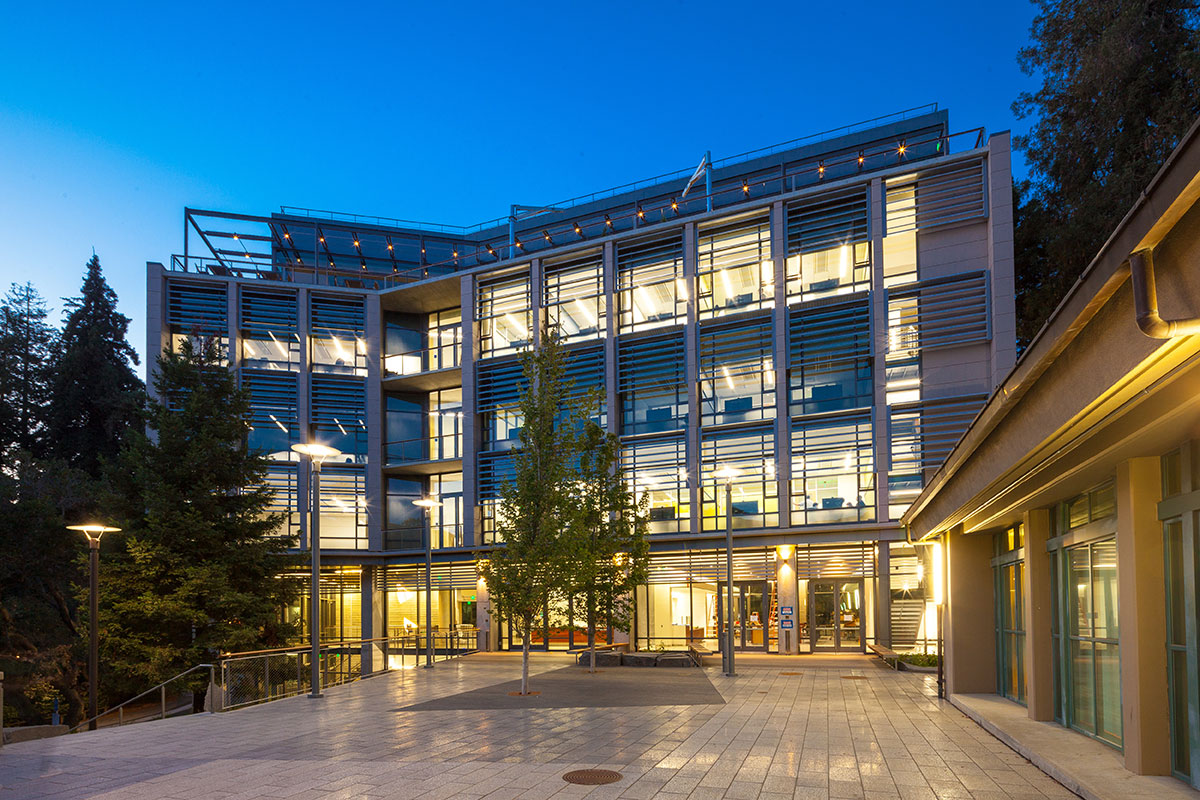
The Haas School of Business GPA average for MBA applicants rose from 3.66 to 3.7 since 2015.
4. Yale School of Management
Significantly up from its GPA average of 3.6 in 2015, the Yale School of Management today has one of the highest undergraduate GPAs in the country at an average of 3.69.
5. Booth School of Business – University of Chicago
The MBA at University of Chicago’s Booth School of Business has consistently maintained one of the top GPA averages for programs in the U.S., up from 3.59 in 2015 to 3.6 this year.
6. The Wharton School – University of Pennsylvania
The Wharton School, consistently recognized for having some of the country’s top business programs, is nothing if not consistent. With a 3.6 average for incoming students between 2012 and 2015, Wharton maintains a perfect 3.6 average GPA this year as well.
7. Kellogg School of Management – Northwestern University
Northwestern’s Kellogg School of Management is another school where consistency is key. From 2014 to today the school has remained at an undergraduate GPA average of 3.6
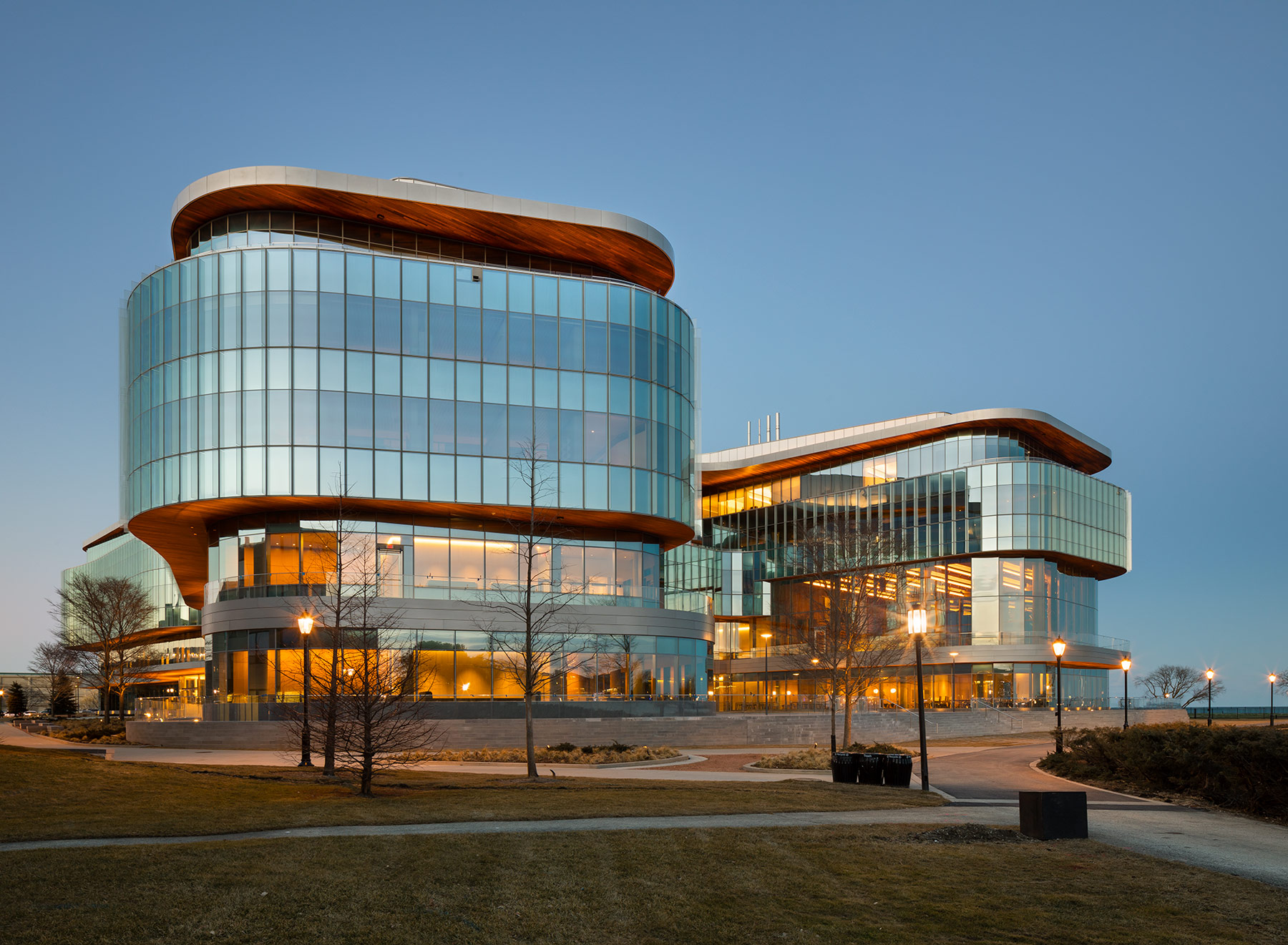
The average Kellogg undergraduate GPA for MBA students has stayed at 3.6 since 2014.
8. Tuck School of Business – Dartmouth College
The average GPA for incoming students at Dartmouth’s Tuck School of Business has gone up and down throughout the years, but has consistently stayed among the highest in the country- down slightly from 3.52 in 2015 to 3.51 this year.
9. Columbia University – Columbia Business School
The Columbia Business School has always received distinctions as one of the top MBA programs in the country, and their average GPA for incoming students at 3.5—which has stayed the same for more than five years—is no exception.
10. MIT – Sloan School of Management
Typically placing much higher on the list, the average Sloan School of Management at MIT has decreased in recent years, from 3.54 in 2015 to 3.49 for this year’s incoming class. The number nonetheless still remains among the highest average GPAs for MBA programs throughout the country.
Managing a Personal Crisis, and More – Boston News

What’s going on in Boston this week?
How to Manage an Employee Who’s Having a Personal Crisis – Harvard Business Review
The Harvard Business Review recently explored how managers can best support employees to “take care of themselves emotionally while also making sure they are doing their work.”
Annie McKee, author of How to Be Happy at Work and a senior fellow at Penn’s Graduate School of Education, offers three helpful suggestions:
- Set a tone of compassion in the office. It will not only give your employees confidence to approach you with struggles, but also give you the ability to spot warnings signs.
- Be creative with solutions. A flexible schedule may allow a person to maintain their output without much disruption.
- Check in from time to time, both to reassure the employee and to make sure that further adjustments or accommodations aren’t needed.
You can read the full article over at HBR.
Agile at Scale, Explained – MIT Sloan Newsroom
MIT Center for Information Systems Research’s Kristine Dery is currently studying how agile management—the increasingly popular management methodology adopted by the likes of Microsoft, Ericsson, and Spotify—relates to the employee experience.
MIT Sloan School of Management senior lecturer and industry liaison Carine Simon writes, “The traditional method of managing, the waterfall method, which is very inflexible, planned-in-advance, linear, and not iterative at all, wasn’t lending itself at all to the flexibility and the adjustments that were necessary to make great software.”
Simon adds, “[Agile is] iterating with customer feedback, prototypes, and tests, versus taking some requirements and issuing the product maybe a year later, when the customer’s requirements have changed or technology has evolved.”
Many companies have taken note of agile’s prevalence and begun to “ask whether the method’s practices and philosophies could be scaled up to apply with equal success to other projects or even entire business functions,” according to Simon and Dery.
Simon continues, “In customer-centric processes where customer input is key, and in that sense it’s quite uncertain or fast-changing, then those would be the types of areas in a firm that lend themselves to agile.”
Check out the full article here.
Questrom Professor Named 2018-19 Batten Fellow – Questrom Blog
BU Questrom School of Business‘ Siobhan O’Mahony was recently awarded a 2018-19 Batten Fellowship by the Batten Institute for Entrepreneurship and Innovation at University of Virginia Darden School of Business.
The Batten Fellows program, according to Darden, “provides support for prominent thought leaders and high-potential scholars who seek to generate new knowledge about entrepreneurship and innovation.”
O’Mahony, an Associate Professor of Strategy & Innovation and Academic Director of Research and Curriculum for Innovate@BU, explores how “technical and creative projects organize for innovation.”
O’Mahony plans to use her fellowship to “research entrepreneurial ecosystems and how those systems influence entrepreneurs and their efforts around venture creation.”
Read all about O’Mahony’s fellowship as part of the full article here.
Can Society Keep Up with Tech Entrepreneurs? – Boston News

Let’s explore some of the most interesting stories that have emerged from Boston business schools this week.
When Technology Gets Ahead of Society – Harvard Business Review
The Harvard Business Review recently dove into work by professor and Harvard‘s Lakshmi Mittal South Asia Institute Director Tarun Khanna that examines tech entrepreneurs’ “insouciance about the legal and social issues their innovations birth.”
Khanna explains that one pervasive issue we are collectively trying to negotiate is that necessary “regulatory, logistical, and social barriers” often struggle to keep pace with new and increasingly disruptive technologies.
“Although electric cars are subsidized by the federal government, Tesla has run afoul of state and local regulations because it bypasses conventional dealers to sell directly to consumers. Facebook is only now facing up to major regulatory concerns about its use of data, despite being massively successful with users and advertisers.”
Khanna argues that instead of shortening the “period between the advent of a technology and the emergence of the rules and new behaviors that allow society to embrace its possibilities,” Khanna encourages tech leaders to “take more responsibility for the whole ecosystem and bring regulators and consumers along with them, all of society stands to benefit.”
You can check out the full article here.
Machine Learning Will Redesign, Not Replace, Work – MIT Sloan Newsroom
MIT Sloan’s Erik Brynjolfsson, Carnegie Mellon’s Tom Mitchell, and Daniel Rock, a doctoral candidate and researcher at the MIT Initiative on the Digital Economy, published new research in the American Economic Association Papers and Proceedings, which finds that automation will most likely replace “specific tasks within jobs, rather than entire occupations themselves.”
Brynjolfsson writes, for instance, about deep neural networks that are adept at “tasks involving predictive analytics, speech and image recognition, and natural language processing, among others.”
The researchers write, “Automation technologies have historically been the key driver of increased industrial productivity. They have also disrupted employment and the wage structure systematically.”
“However, our analysis suggests that machine learning will affect very different parts of the workforce than earlier waves of automation. Machine learning technology can transform many jobs in the economy, but full automation will be less significant than the re-engineering of processes and the reorganization of tasks.”
You can read the full article here.
Northeastern Recognized For Excellence in Fostering Entrepreneurship – D’Amore-McKim Blog
At its recent Symposium for Innovation and Entrepreneurship, the Deshpande Foundation bestowed its 2018 Entrepreneurial University Award on Northeastern for the school’s “overall excellence in innovation and entrepreneurship.”
The Deshpande Symposium assembles “policy planners, academics, and practitioners from around the globe to discuss best practices for integrating entrepreneurship through university and college communities.”
This marks the second time in four years that Northeastern was honored at the Deshpande Symposium, having won the 2015 Excellence in Student Engagement in Entrepreneurship award.
Of the Entrepreneurial University Award, D’Amore-McKim Dean Raj Echambadi writes, “We pride ourselves in creating and training ‘Chief Entrepreneurial Officers’ who think differently and are capable of solving the grand challenges of business and society in a global economy.”
“This award is a testament to the strength of experiential learning through the integration of rigorous classroom education and real-world entrepreneurial engagement.”
The full article can be found here.
MIT on the Problems with Twitter, and More – Boston News

Let’s explore some of the most interesting stories that have emerged from Boston business schools this week.
Marketers Take Note: When Too Many Choices are a Burden, Not a Benefit – Questrom School of Business News
BU Questrom School of Business Ph.D. alum Sarah Whitley recently co-authored a new Journal of Consumer Research paper with Associate Professor Remi Turdel and fellow Assistant Professor Didem Kurt, in which they discovered “that people typically want more choices when they’re buying for pleasure [and they want] fewer choices when they make a purchase for strictly utilitarian or functional reasons.”
The research dives into what is more commonly known as the Paradox of Choice. The idea crept into the market lexicon shortly after the release of the 2004 book The Paradox of Choice – Why More Is Less from psychologist Barry Schwartz, NYU alum and U. Penn Ph.D. The general idea Schwartz derived was that consumer anxiety could be caused by too many options. However, research from Whitley, Turdel, and Kurt reveal that it may only pertain to specific kinds of purchases, not simply overall.
Whitley says the major takeaway is that businesses can be more strategic if they know “what motivates the buying decisions of their customers.”
“For product categories where people feel that they have unique preferences, it may be worth it to have more variety. It may be fine to reduce the number of offered products where this is not the case.”
You can read the full article here.
Solving Twitter’s ‘Follow-Back’ Problem – MIT Sloan Newsroom
About four years ago, MIT Sloan Associate Professor of Operations Tauhid Zaman put together a social media experiment in which he used Taylor Swift’s friends on Twitter to “open the gates to her inner circle.”

Dubbed the “follow-back problem,” Zaman sought to understand “the underlying dynamics of follows on Twitter, [such as] what kinds of Twitter interactions matter the most when trying to get followers? And do overlapping social networks actually help build connections? If they do, then to what degree do they help?”
Zaman found that Twitters “who don’t follow many other people are unlikely to follow you back, while those who follow a lot of people are likely to follow you if you follow and retweet them.” He also found that if, for instance, “Swift follows somebody who, in turn, follows Zaman, then Zaman has a greater chance that Swift will follow him.”
The article notes that social media tools can “have a tremendous blast radius” in terms of their ability to powerfully influence the opinions of a whole country.
“In my opinion, this can be far more dangerous than conventional weapons which have a fixed blast radius. These are weapons, and I’m building efficient ways to use the weapons, so this has to be handled with care,” Zaman said.
Read the full article, the first in a three-part series examining new work about Twitter, influence, and bots, here.
How CEOs Manage Time – Harvard Business Review
Harvard Business School Professors Michael E. Porter and Nitin Nohria recently published a piece in the Harvard Business Review that examines how CEOs allocate their time.
According to the article, face-to-face interactions take up “61 percent of the work time of the CEOs we studied. Another 15 percent was spent on the phone or reading and replying to written correspondence. The final 24 percent was spent on electronic communications.”
The authors describe the CEO’s job as “relentless.” They write, “Given that work could consume every hour of their lives, CEOs have to set limits so that they can preserve their health and their relationships with family and friends. To sustain the intensity of the job, CEOs need to train—just as elite athletes do. That means allocating time for health, fitness, and rest.”
You can read the full article here.
Look Out for These Boston Internships

If you’ve read MetroMBA’s look at how summer internships play a crucial role for MBA students, you’re probably already familiar with the many benefits of interning during your MBA career. Between forging professional connections, gaining hands-on experience, and top tier salaries, MBA students have lot to gain from seeking out these opportunities. Boston internships manage to stand out, in particular, because of a wealth of excellent business school options.
Of course, the internship model is a win-win for all participants: students get the opportunity for professional experience, and companies get to work alongside emerging talent in the business world. Companies across the U.S. actively search for and recruit this talent. The need and capacity for interns, however, can vary from organization to organization. As students begin their search for the perfect internship, and can be important to take note of what companies are the biggest internship employers in their area.
Boston Internships for MBAs
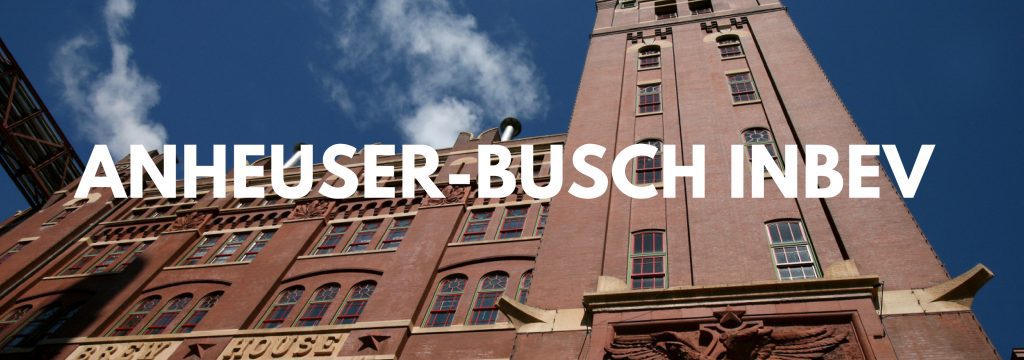
Anheuser-Busch InBev (AB InBev), created ten years ago through the merger of Anheuser-Busch and InBev, is one of top hirers for MBA students in the Boston region. A Belgian-Brazilian beverage and brewing company, AB InBev has offices throughout the world, currently employing around 183,000 people. Given the global nature of their product, the company sponsors MBA and internship opportunities with a focus on global business. Each summer, the company offers a 10-12 week summer internship at their New York office, which often results in getting hired into the company’s Global MBA program—a one year high potential leadership program that prepares participants for quick career growth.
Anheuser-Busch InBev was one of the top hirers for MBA internships at both the Harvard Business School and the Sloan School of Management at MIT, two of the most highly ranked business programs in the world. At MIT Sloan, AB InBev employed nine members of the Class of 2017 as summer interns.
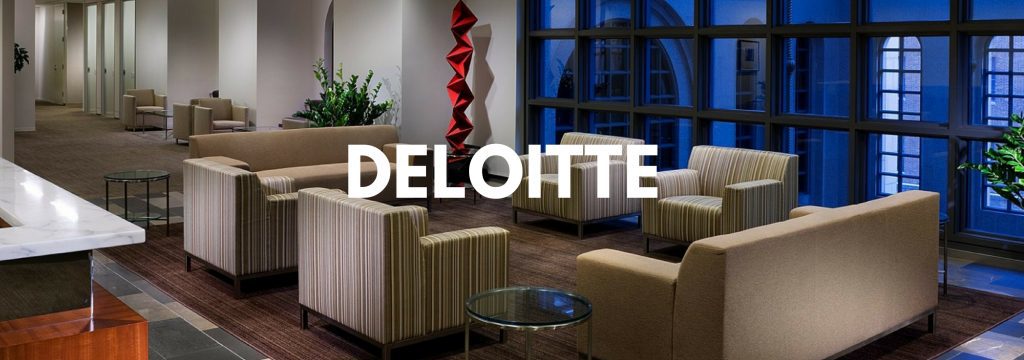
Founded 173 years ago in London, Deloitte remains one of the world’s top professional services networks today, providing tax, consulting, enterprise risk and financial advisory services throughout the world. As of 2016, Deloitte was recognized as the 6th largest privately owned organization in the United States.
With roughly 263,900 employees worldwide, it’s probably no surprise that Deloitte offers plenty of Boston internships. Deloitte Consulting hired six MBA interns from MIT Sloan for the summer of 2017, and also made the lists of top employers for F.W. Olin, Harvard, and Suffolk University’s Sawyer Business School.
The vast number of student interns employed at Deloitte may be a reflection of their vast internship program, which include programs like the Deloitte Consulting Immersion Program, Deloitte Women’s Leadership Launch, and the Advanced Degree Veterans’ Forum.
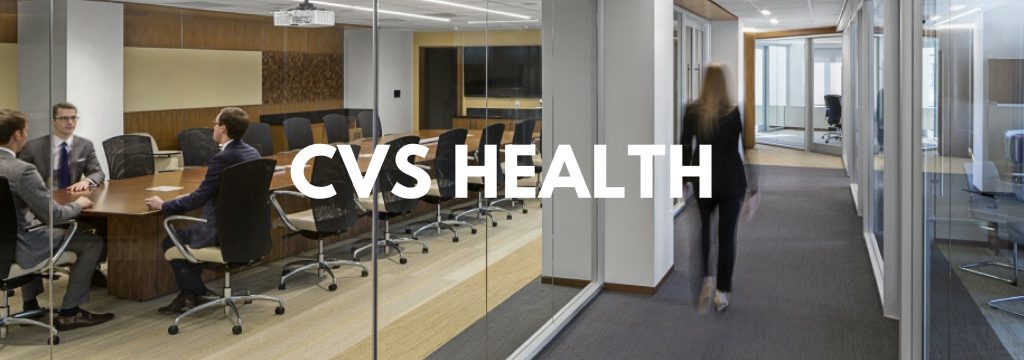
At Boston University’s Questrom School of Business, 108 different companies hired 140 students for internships in 2018. CVS Health, also an employer for MBAs from Harvard Business School and Babson College’s F.W. Olin Graduate School of Business, hired five students from Questrom for summer internships, making it the number one employer for that school.
CVS Health Corporation, headquartered in Woonsocket, Rhode Island, has grown since 1964 into a top Fortune 500 company with more than 246,000 employees and $177 billion in annual revenue. In December 2017, the retail and health care company also made headlines when it acquired health insurance mega-company Aetna for $69 billion.
CVS Health offers a number of MBA internship programs for MBA students, depending on their interest within the field. Among them are the CVS Year-round internship, Spanish Immersion Summer Internship, and Specialty Clinical Innovation Internship. CVS also believes in students growing their careers with the organization, which likely means greater opportunity for an internship to turn into a long term career.
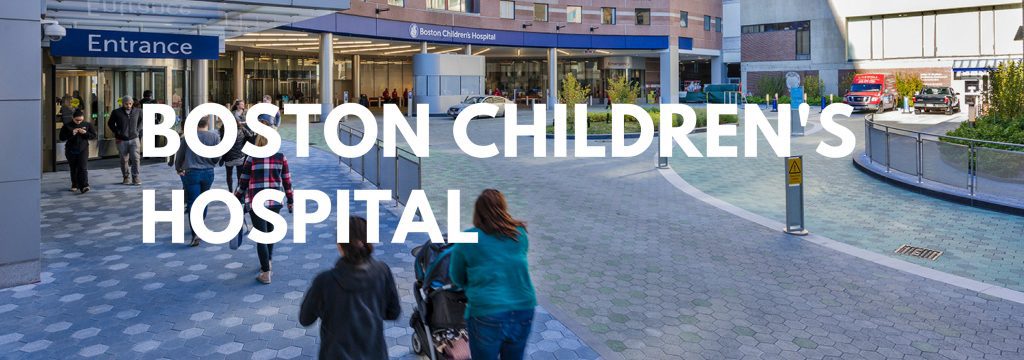
With the growing popularity of jobs within the healthcare administration field, it should come as no surprise that one of the top employers for MBA internships in Boston is the Boston Children’s Hospital. The hospital, founded in 1869, has been ranked by the U.S. News & World Report #1 in eight of ten clinical specialties. For 2018-19, it was named the country’s number one pediatric hospital.
The hospital is affiliated with Harvard Medical School, so it’s likely no surprise that they are a top employer of MBA students as well, learning about the other side of health care. They are also one of the top employers for MBA students at Northeastern’s D’Amore-McKim School of Business, which requires students to pursue a corporate residency for six months of its 24-month full-time MBA program.
MIT Sloan MBA Deadlines Have Been Announced

The newest batch of MIT MBA deadline dates have been announced for the Sloan School of Management, going in to the 2018-19 academic season.
Round One
Deadlines: September 25, 2018
Notifications: December 19, 2018
Round Two
Deadlines: January 22, 2019
Notifications: April 2, 2019
Round Three
Deadlines: April 8, 2019
Notifications: May 8, 2019
Head over to the official MIT Sloan website for more application information.
